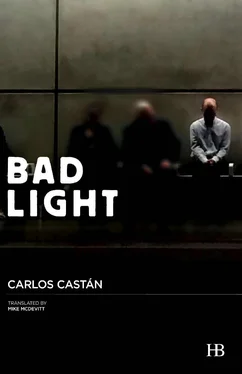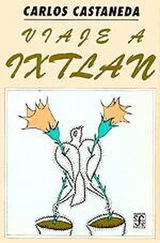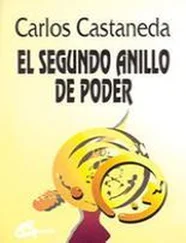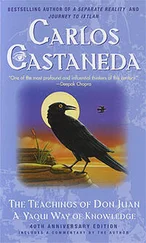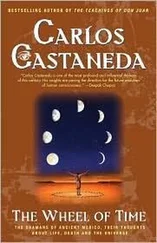Carlos Castán - Bad Light
Здесь есть возможность читать онлайн «Carlos Castán - Bad Light» весь текст электронной книги совершенно бесплатно (целиком полную версию без сокращений). В некоторых случаях можно слушать аудио, скачать через торрент в формате fb2 и присутствует краткое содержание. Год выпуска: 2016, Издательство: Hispabooks, Жанр: Современная проза, на английском языке. Описание произведения, (предисловие) а так же отзывы посетителей доступны на портале библиотеки ЛибКат.
- Название:Bad Light
- Автор:
- Издательство:Hispabooks
- Жанр:
- Год:2016
- ISBN:нет данных
- Рейтинг книги:5 / 5. Голосов: 1
-
Избранное:Добавить в избранное
- Отзывы:
-
Ваша оценка:
- 100
- 1
- 2
- 3
- 4
- 5
Bad Light: краткое содержание, описание и аннотация
Предлагаем к чтению аннотацию, описание, краткое содержание или предисловие (зависит от того, что написал сам автор книги «Bad Light»). Если вы не нашли необходимую информацию о книге — напишите в комментариях, мы постараемся отыскать её.
Carlos Castán
Bad Light
Bad Light — читать онлайн бесплатно полную книгу (весь текст) целиком
Ниже представлен текст книги, разбитый по страницам. Система сохранения места последней прочитанной страницы, позволяет с удобством читать онлайн бесплатно книгу «Bad Light», без необходимости каждый раз заново искать на чём Вы остановились. Поставьте закладку, и сможете в любой момент перейти на страницу, на которой закончили чтение.
Интервал:
Закладка:
Child, forgive me for all the harm I’ve inflicted on you, for what I have ended up making of your life. Forgive me for not having listened to you more, little Rocamadour of my own novel, little cardboard horse, for not having spent more time with you. I look at this photo, and for the first time in my life, I feel I can truly see you. You are not only me, by which I mean, you are me, but you depart from within me, you slip free of the filthy jail cell of my limited identity and become a child, pure and simple, out there, deserving of every tenderness, lots of love, even this love of mine that is now poor and a little drab and has a way of sometimes tainting things whether I like it or not. If I could see you entirely from the outside, I would want to protect you, to kiss you; no harm could come to you while I was nearby. I’m not sure why good sense tells me I cannot harbor such feelings simply because you are me when I was small, I cannot fathom today this strange shyness I ought to feel when loving you and all of a sudden no longer feel, perhaps because I am already sliding down a ramp that leads who knows where, to the middle of some stormy sea or dreadful silence. I look at you and I know I could learn to love you like no other. For no other living soul could I have done as much as I could have for you, living as I have lived within your skin, my hand on the tiller, on paper at least, guiding the steps you take in those patent-leather shoes with a buckle on one side that now seem somewhat comical. I could have watched over you like a Guardian Angel, defending your laughter and your innocence and the four corners of every bed you ever had; and yet I have ruined the life of no other creature as I have yours. You look a lot like one of my sons when he was your age. You are all but identical. I would have laid down my life for him and still would, yet to you I have left barely a thing: these black lungs, if anything, wretched loves and nights of terror, a liver on its last legs, a few friends, but always the same noose slung hovering so closely over your throat and all this weight with which I saddled you. I look at my knees today, my hands, and it takes some effort to believe they are the same as the ones in the photo, the same eyes, the same legs that once held you upright. I can barely believe I’m still alive. In other words, I know that I’m still alive but don’t understand it.
I feel the need today to tell you that I loved you in my own way, even without knowing how to. That I like the fact that you’re my past, and that I’m proud of your high school diplomas and the things you sketched with a few strokes of a pen on any old scrap of paper, some of which I still keep in an old folder at the back of a closet, monsters and mountains with clouds up on high, ice-cream vans, racing cars of every color, soccer players poised to strike, revolvers, and princes on horseback.
I don’t know the point at which I let you die. In truth, I’m not even sure you’re really dead, altogether dead, I mean, but even so, allow me to say how truly sorry I am if that’s how it was, if I was unable to hold you tight enough when you left, when you slipped away from me to who knows where. Your skin was so smooth, your dreams so crystal clear. Now that I can no longer hear you, now that it’s been quite some time since I last felt your heart beating within me, in the darkness in me, I want you to know that the place in my insides where you once slept clutching tightly to your plastic truck, with your toy elephant, your hand-me-down pajamas, your longing to get to know me just as you thought I’d turn out to be and in the end did not know how to be, aches from the sheer cold.
If you had had your way, I was going to have coal-black, lustrous hair and would almost always be sporting a crisply ironed white shirt, that much I do remember, though I’d also have another one of the type worn by explorers, perhaps bearing the odd badge of honor of the sort kings bestow on men of action. And a pair of thigh-high boots. And sunglasses. I was going to have a big, bright-red convertible and would forever be heading home, very tanned, from journeys to islands and jungles no one had ever heard of. There are a ton of postcards that in the end you and I never sent anyone from anywhere. I sometimes think of those postcards, of their astonishing skies. As things turned out, no one back in Spain ever fought to collect the exotic stamps they would bear with hard-to-remember names of countries, with W s and H s in them, and each one a different color and size. I guess nothing ever came of all that envy we hoped to arouse in the world, taking photos of ourselves grinning and sporting all manner of hats by West Indian ports and atop the peaks of Asia, of all the native languages we were going to learn to speak, the arts of fishing and war, of the mysterious ebony masks that were going to adorn the walls of our apartment, filled also with treasure chests found in temples buried beneath blankets of ivy, and amulets to ward off bad luck, and jewels, and daggers we would sometimes show to visitors, taking great care so as not to break them. I’m afraid that the white shirt was about as far as we got.
I can’t even ask you not to forget me, for, thankfully, a child cannot remember what will become of him. Which is why they — children — laugh and play, why they do not leap from the cliff tops. But I do ask that you take me at my word on a few things: it was not my wish to distance myself from you, I remember you on many days, almost every one; I would have liked for us to spend more time together.
12 (lion’s cage)
The first weekend after Jacobo’s death, it was my turn to be with my children. And it was by no means easy, first and foremost as I did not want them to notice the state I was in, and time and again I found myself with no choice but to head outdoors so as to be able to cry out of eyeshot. I’m taking out the trash, I’d tell them, or I’m off to buy a loaf of bread, I’m going for a stroll around the block to get a little air. Only to break down in sobs at the first corner I could find where I figured no one could see me. I looked for doorways left ajar, entrances to garages in which to weep. If I drifted too far from home, I’d have to race back, as, for no reason whatsoever, I’d get it into my head that something dreadful might have occurred in my absence, no matter how brief it had been — a cracked skull, a gas leak, another map of blood on the wall or the tiled floor. I’d picture one of my sons, his head resting on the chest of my other son’s dead body, weeping and calling out my name. Weeping of the sort I’d only ever seen in the movies, his mouth open, his entire face drenched with tears. Then they’d swap roles. If at first it was my eldest lying motionless on the floor, the figures then flipped around, just like in those old schoolyard scuffles in which, locked in an embrace, we would literally roll on top of one another across the earth, and this time the corpse was that of my younger son. My hands were shaking so much it was all I could do to fit the key inside the lock, and when at last I managed to get the door open, I would see before me the most domestic and peaceful of scenes. I’d sink into the couch to catch my breath, but my beating heart took hundreds of minutes to settle. Not that the infernal racket of the PlayStation did much to help, with its endless battles between Martians or zombies, its shrill music, and its planets in flames. I had to tell them I was sick to see if they might take a little pity on me and also so that they wouldn’t be altogether taken aback when I set a place only for them at mealtimes, while I sat at the other side of the room, without touching a morsel, or paced from one end of the apartment to the other like a caged beast.
Читать дальшеИнтервал:
Закладка:
Похожие книги на «Bad Light»
Представляем Вашему вниманию похожие книги на «Bad Light» списком для выбора. Мы отобрали схожую по названию и смыслу литературу в надежде предоставить читателям больше вариантов отыскать новые, интересные, ещё непрочитанные произведения.
Обсуждение, отзывы о книге «Bad Light» и просто собственные мнения читателей. Оставьте ваши комментарии, напишите, что Вы думаете о произведении, его смысле или главных героях. Укажите что конкретно понравилось, а что нет, и почему Вы так считаете.
